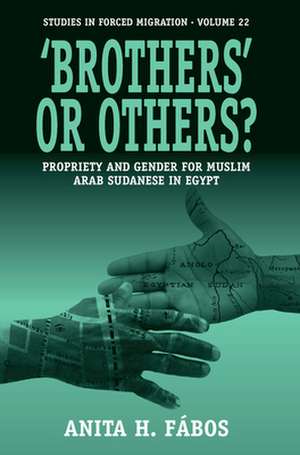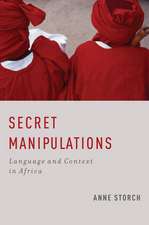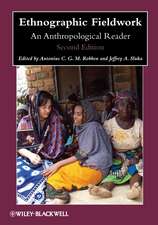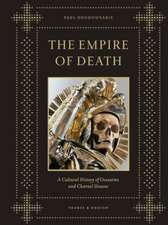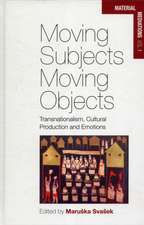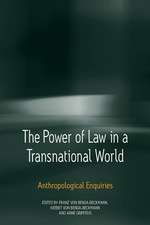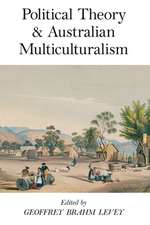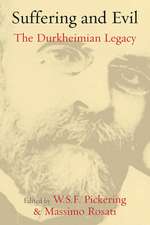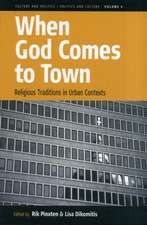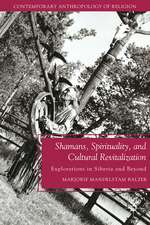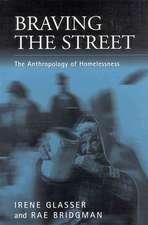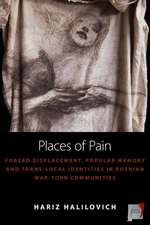'Brothers' or Others? Propriety and Gender for Muslim Arab Sudanese in Egypt: Forced Mitigation
Autor Anita Fabosen Limba Engleză Paperback – 31 oct 2010
"This rich ethnographic work complicates the notions of identity, loyalty, citizenship, and inclusiveness, showing how ethnic categories and cultural references can be manipulated to determine affiliation, inclusion, or marginalization... To understand the fluidity of these identities, as well as the ambiguities and contradictions of the legal and political status of Sudanese in Egyptian society, Fabos employs not only a wealth of ethnographic research, but also significant knowledge of colonial history and international legal regimes." · Journal of Middle East Women's Studies
Muslim Arab Sudanese in Cairo have played a fundamental role in Egyptian history and society during many centuries of close relations between Egypt and Sudan. Although the government and official press describes them as "brothers" in a united Nile Valley, recent political developments in Egypt have underscored the precarious legal status of Sudanese in Cairo. Neither citizens nor foreigners, they are in an uncertain position, created in part through an unusual ethnic discourse which does not draw principally on obvious characteristics of difference. This rich ethnographic study shows instead that Sudanese ethnic identity is created from deeply held social values, especially those concerning gender and propriety, shared by Sudanese and Egyptian communities. The resulting ethnic identity is ambiguous and flexible, allowing Sudanese to voice their frustrations and make claims for their own uniqueness while acknowledging the identity that they share with the dominant Egyptian community.
Anita Fábos is an anthropologist whose work focuses on refugees and the nexus of ethnicity, race and gender in the Middle East. In addition to conducting research together with Sudanese individuals and families in Cairo and elsewhere in the Sudanese diaspora, she explores and livelihood and identity strategies for urban forced migrants, refugee transnationalism, and refugee narratives and the state. She is Associate Professor at Clark University¹s Department of International Development, Community and Environment, where she coordinates the graduate program in International Development and Social Change.
Preț: 256.92 lei
Nou
Puncte Express: 385
Preț estimativ în valută:
49.18€ • 53.44$ • 41.34£
49.18€ • 53.44$ • 41.34£
Carte tipărită la comandă
Livrare economică 21 aprilie-05 mai
Preluare comenzi: 021 569.72.76
Specificații
ISBN-13: 9781845459895
ISBN-10: 184545989X
Pagini: 204
Dimensiuni: 152 x 229 x 11 mm
Greutate: 0.28 kg
Ediția:Revised
Editura: BERGHAHN BOOKS INC
Seria Forced Mitigation
ISBN-10: 184545989X
Pagini: 204
Dimensiuni: 152 x 229 x 11 mm
Greutate: 0.28 kg
Ediția:Revised
Editura: BERGHAHN BOOKS INC
Seria Forced Mitigation
Notă biografică
Anita H. Fabos is a Senior Lecturer in the Department of Cultural Studies, University of East London, where she teaches for the Masters programme in refugee studies. Formerly Director of the Forced Migration and Refugee Studies Programme at the American University in Cairo, Egypt, she received her Ph.D. in anthropology from Boston University in 1999.
Cuprins
Acknowledgements Note on Transliteration and Transcription Glossary PART I: UNITY AND 'BROTHERHOOD' Chapter 1. Introduction Historical Framework Muslim Arab Sudanese: Labels and Definitions Framing Difference: Ethnicity, Inequality, and Mobility Positioning and the Production of Knowledge Scope of the Book Chapter 2. Being Sudanese in Cairo Centuries of Migration: Sudanese in Egypt, Egyptians in Sudan Contemporary Sudanese Migration and Forced Migration to Egypt Sudanese in Cairo: Urban Geography Displacement and Resentment PART II: MODERNITY AND OTHERNESS Chapter 3. Creating Foreigners, Becoming Exiles Competing Nationalisms in a United Nile Valley Borders and Citizens Gender, Egyptian Statecraft, and Sudanese Transnationalism Creating Refugees Becoming 'Others' Chapter 4. Presenting Sudanese Differences Muslim Arab Sudaneseness PART III: NEITHER 'BROTHERS' NOR 'OTHERS' Chapter 5. Muslim Arab Adab and Sudanese Ethnicity Adab as a Discursive and Cultural Concept Gender and Propriety Sudanese Gender Roles and Adab in Cairo: Ideal and Real Adab in the Community Chapter 6. A Sudanese 'Culture of Exile' in Cairo Community Mobilization: Circumstances and Strategies Taking Muslim Arab Sudanese Identity Public: Adab and Community Exile and Change: a 'New Sudan'? Imagining Sudan in Exile Chapter 7. Gender, Diaspora, and Transformation Gender and Displacement in Cairo Challenging Adab/Transforming Gender Sudanese in Cairo, Sudanese in the Diaspora The Dialectic of Sudanese Ethnicity Conclusion: Ambiguous Ethnicity Bibliography Index
